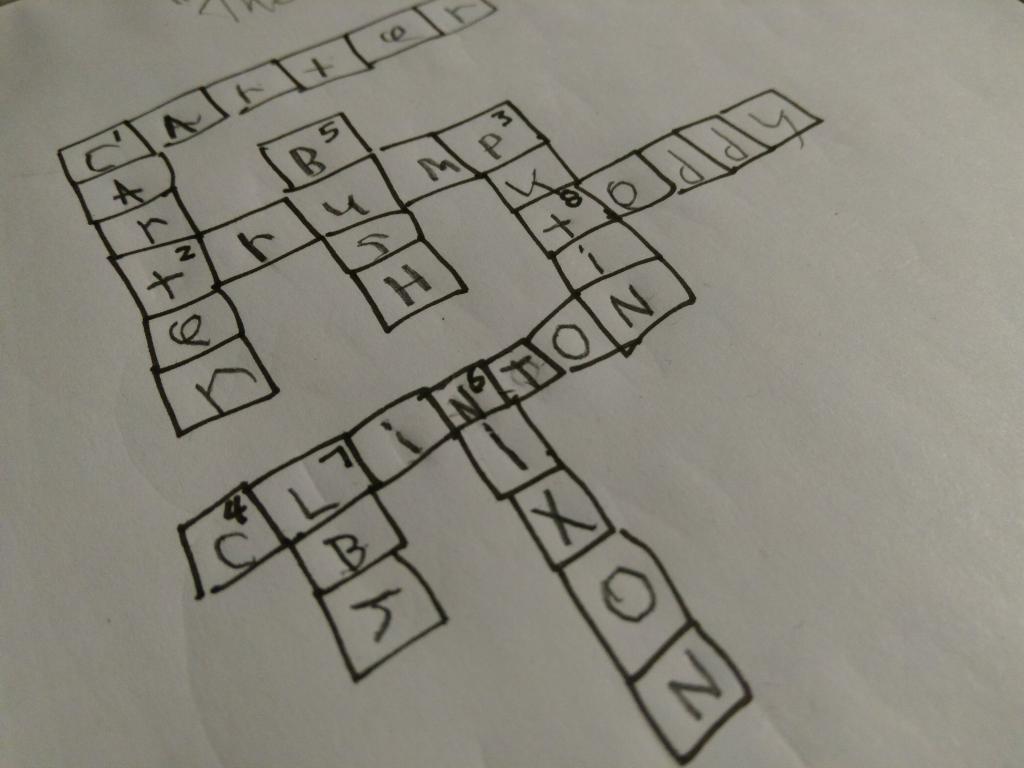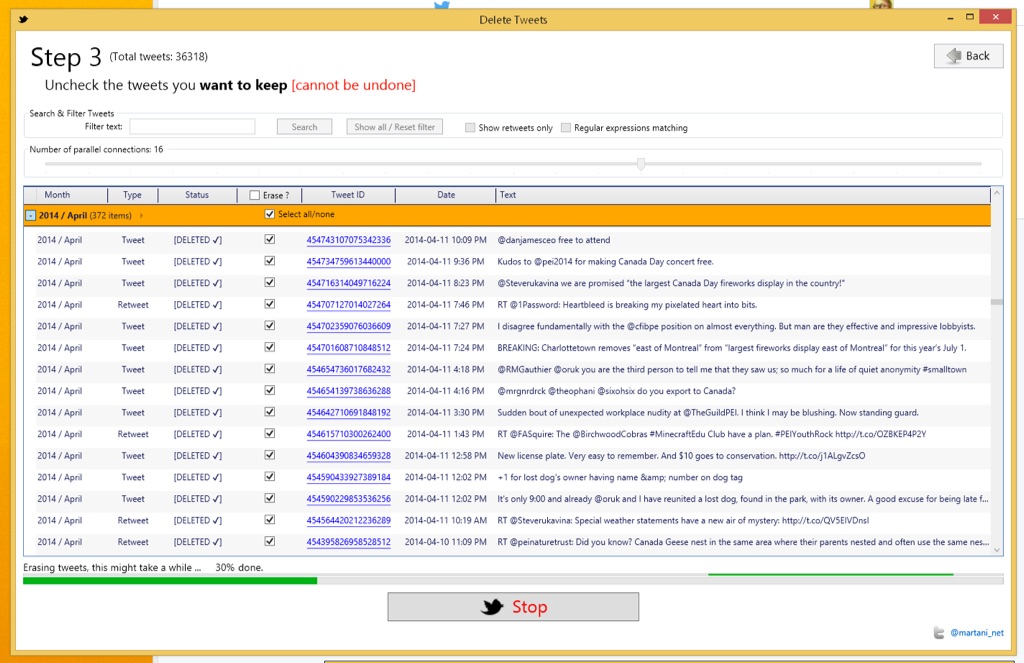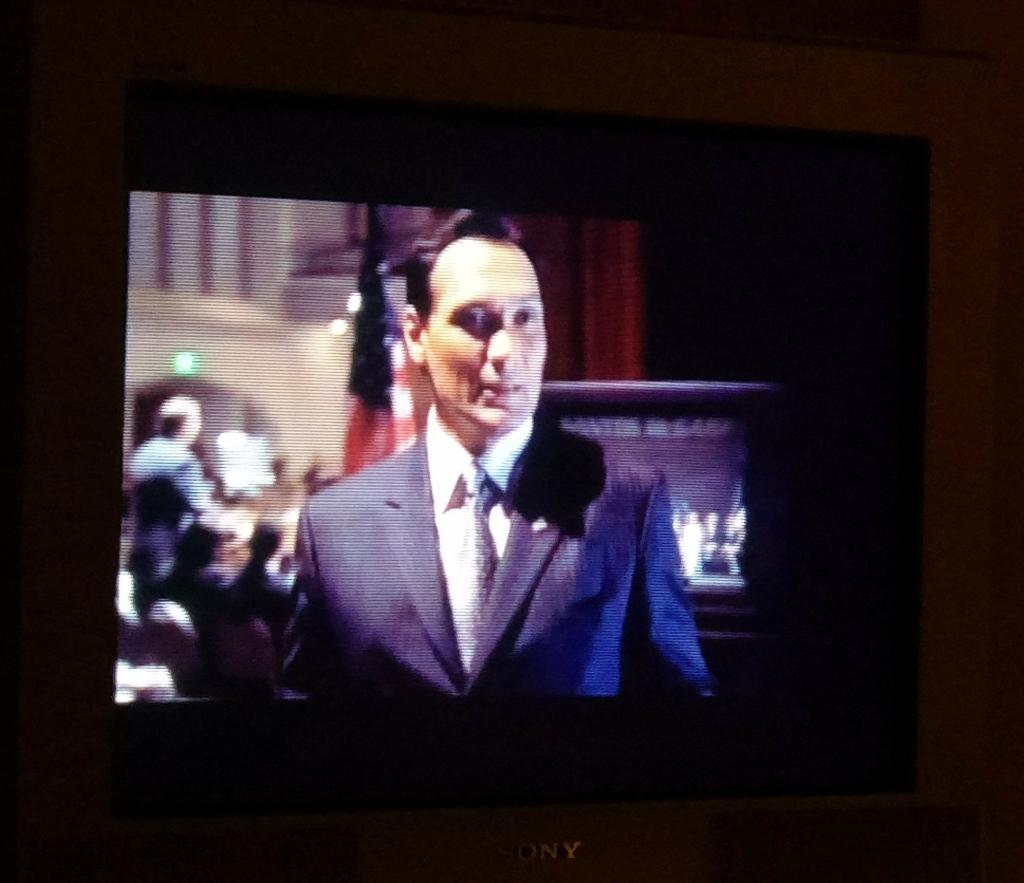Email newsletters are the cat’s pajamas these days. Recomendo, from Kevin Kelly and his Cool Tools crew, is among my favourites. “A weekly newsletter that gives you 6 brief personal recommendations of cool stuff,” they describe it. And that’s what it is. Here’s a recommendation that I followed this week:
For many years I’ve used Gmail’s web interface. I’ve tried lots of standalone apps, but they always fell short and I’d return to Gmail. Then I tried Spark (Mac OS X and iOS) and I’m hooked. It’s smart, snappy, and has lightning fast search. I have not used Gmail since installing Spark.
I installed Spark immediately, and am trying it out to see whether I agree (I’m comparing it to Apple’s Mail.app, not to Gmail; I’ve never been a serious Gmail user).
While you’re subscribing to email newsletters, give Mita Williams’s University of Winds a try too; it’s also accurately described: “Three links to things in the world every Saturday.” And that’s why you get.
(I am so glad that I have neither first nor last name that ends in “s”–I’m not sure I could handle the apostrophic ambiguity of it all).
From the compelling Spoon & Tamago blog, the story of the Japanese train station built around a tree.

Dave Atkinson writes about the ramifications of an oversupply of Gorgonzola cheese to the Fredericton market. He begins:
I’m squeezing through the crowds at Fredericton’s Boyce Farmers Market. It’s a few weeks before Christmas, 2002. I finally make my way to the front of the line at the cheese shop.
From this morning’s New York Times:
Steven T. Mnuchin, who failed to disclose nearly $100 million in assets, said the disclosure forms were “complicated” and his omissions were “unintentional.”
Every year, as a U.S. citizen living abroad, I have to file disclosure forms detailing all of my foreign bank accounts. I do this in scrupulous detail, down to the $8 in my PayPal account and the $15 in my Provincial Credit Union shares account.
I file these disclosures with the Treasury Department. The same department that Mnuchin is being vetted to head.
Every night just before bed I make up a crossword puzzle for Oliver. Sometimes, like tonight, they are topical.

Before [[Ethan]] came into our house, I was the last person on Earth who would consider posting a hilarious dog video online.
But that was then, this is now.
And so, witness this hilarious video of Ethan who, faced with a CD of traditional Venetian barcarole on the stereo, decided to join in.
This is not something that Ethan does regularly; the only time we’ve witnessed him howling at anything before is at an ambulance.
From an interview with Robert Rowland in The Alpine Review № 3 on “The Post-Idea World”:
Alpine Review: I wonder, though, what kind of education system we are going to need to prepare the next generation of people operating in an Age of Intuition, or in a world beyond ideas. Because it seems we are caught in so many frameworks. It’s interesting to envision a world beyond ideas.
Rowland: I think, in terms of education, it is actually much simpler than that. In this country, we have gone backwards in terms of education. If you think about where education was a generation ago, we have now gone back to more kids taking more exams, at a younger age, with more and more testing. It is becoming more like a Japanese system. The opportunity for kids to develop emotionally, physically and so on, that has been cut back. Time for games, for sport, for emotional exploration, talking in a more open, unfettered way about the world—all of that time in the curriculum has been cut back. In a certain sense, I think, it is just about more of that: more time for kids to play, more time for them to do sport, more time for them to talk about their feelings, more opportunity for them to have emotional tools, I suppose, to help them understand their world. Just a bit less math and science, certainly fewer tests. It is crazy, just crazy.
A series of communications related to Twitter coalesced in front of me this week.
Warren Ellis, in his Orbital Operations newsletter, mentioned that he’d purged his Twitter archive back in December. Much in the same way it had never occurred to me that one could stop consuming sugar, it had never occurred to me that this was something one could do, or that one would want to do.
So I was, of course, immediately intrigued.
Then I read in The Guardian that U.S. Customs and Border Protection has added a (currently) optional request for social media account information to its visa application form. It wasn’t so much that I was fearful of being personally affected by this–I don’t need a U.S. visa, as I’m a citizen–as I was woken up to the fact that the tweets in my timeline are, in aggregate, a digital paper trail of my comings and goings, feelings and actions. A trail that government agencies think it useful enough to mine.
The creepy feeling this engendered was only amplified by reading a CBC story this morning that the Canada Revenue Agency–our tax agency–is starting to do much the same thing.
The combination of realizing that I could delete my archive–in the spiritual as opposed to technical sense–and that the only loss suffered as a result will be my data mining attack surface, combined with an increasing realization of how useful (to others) that attack surface is becoming, was enough to push me over the edge.
So I downloaded my Twitter archive, then fired up a Windows 7 virtual machine on my MacBook Air, installed Twitter Archive Eraser, and went through the process of deleting the 36,318 tweets I emitted over the last decade.
It took about 30 minutes to get it all done; I deleted my thousands of direct messages and my 3,314 favourites while I was at it (these are more cumbersome to erase because of Twitter’s rate-limiting; patience is required).

This process was, it turns out, incredibly freeing.
So freeing, in fact, that another mention of Twitter, in this week’s edition of The New Yorker Radio Hour, also caught my attention. Dan Savage talked to David Remnick about Twitter:
Savage: Twitter. I’m addicted to it. Literally it’s the last thing I look at every night in bed before I fall asleep and the first thing I look at every morning on the way to the bathroom. And as I do it I’m like “why am I putting this needle in my arm.”
Remnick: I don’t understand why you do it. I get hit on this all the time. I’m not on it, and yet I read it. I peek over the hedge as it were. But I just know if I went on it, it would be a time suck.
Savage: It is.
In Savage I saw myself.
I love Twitter (how could I have tweeted 36,318 times without loving it). And yet, as Remnick fears and Savage confirms, it is a time suck. Like Savage, checking Twitter has been a morning habit, an evening habit, and a standing in line to get coffee habit. I had cause to wonder not so much “why am I putting this needle in my arm?” as “if I stop putting this needle in my arm, what else could I spend my time doing?”.
I’ve tried and failed before to quit, most splashily back in 2009.
So this time I decided to try a more nicotine-patch style withdrawal: after I deleted my archive, my direct messages and my favourites, I also unfollowed everyone but Catherine and Oliver, reasoning that if there’s nothing on my timeline, what’s there to be addicted to?
Time will tell whether the patch works.
From the book Gondola, a rumination on Venice by Donna Leon:
The cruise ships, long a sore in the eyes of most residents, have been slipping in and out of the city for years, though it is only recently, as their effects on the welfare of the city and its residents have become more evident, that the infection been recognized as a full-blown disease.
There’s almost no criticism of the many cruise ships that sail into Charlottetown Harbour every summer: despite the tolls, hidden and obvious, they place on our infrastructure and our souls, they are regarded almost universally as a thing we want more of. Venetians know better.

 I am
I am